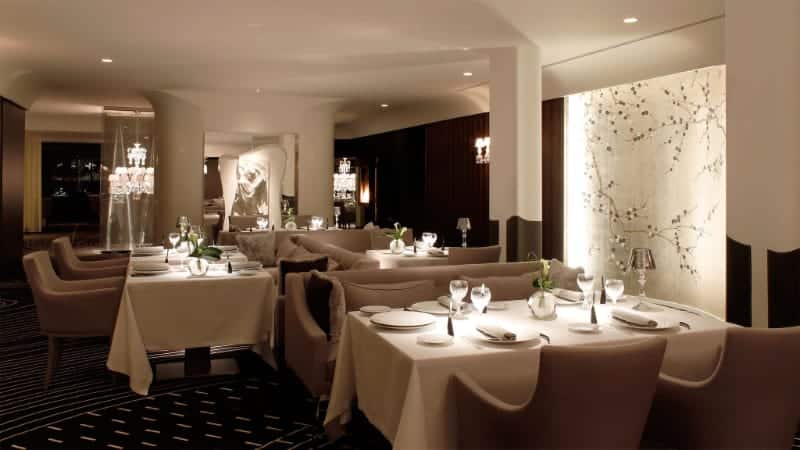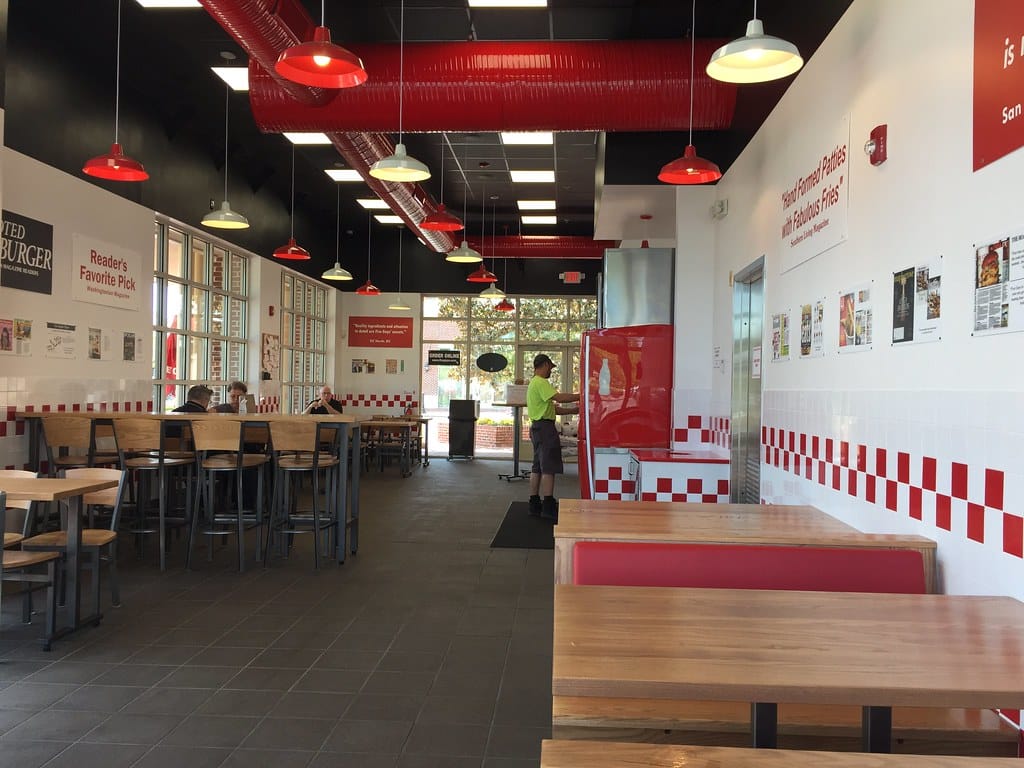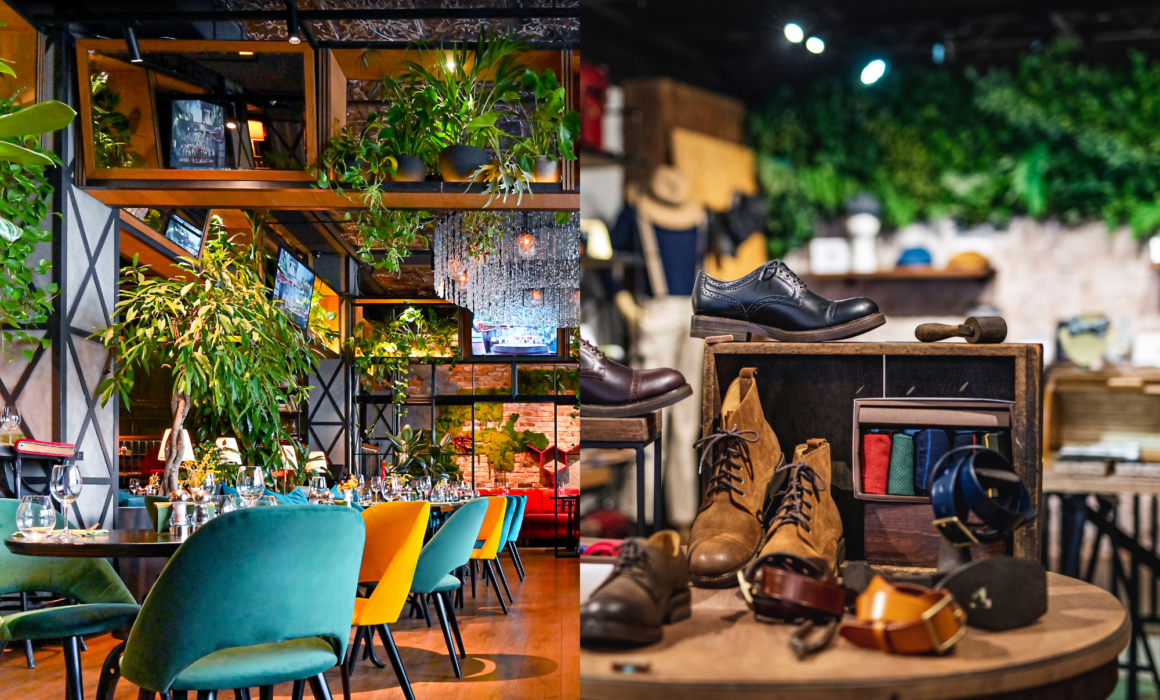Top 4 Qualities of an Attractive Business Space
Are you a small business owner looking for the perfect business space? Finding an attractive, valuable business space can be tricky. But with the right features, your business will have all the ingredients to succeed. Here are the top 4 features that make up a great retail or commercial business space: Openness, Complementary design, Location and Reliability. With these elements in place, your business is sure to thrive!
Openness
Openness is an important feature to consider when designing or choosing a business space. It creates an environment that is inviting and comfortable for visitors. Open business spaces give customers a sense of freedom by allowing them to move around without feeling cramped. Additionally, open business spaces tend to feel more spacious, which can make customers feel more relaxed and comfortable while they peruse the business’ offerings.
It’s best to have at least 8 feet between the walls of the business space to maximize openness. This allows shoppers to walk around the business space with ease and browse items in comfort. The amount of open space should also take into account any furniture or fixtures that are incorporated into the business space’s design. Having too much furniture or fixtures can make a business feel confined rather than open and inviting.
Open business spaces also make it easier for customers to interact with staff members as well as other customers, which builds a sense of community among shoppers and enhances customer experience. Open spaces also help create better communication between staff members, allowing them to collaborate more effectively on different tasks or projects.
Overall, openness is essential for creating an attractive business space that makes customers feel welcome and comfortable inside your store or office. By carefully considering the open features of your business space, you can ensure that visitors have an enjoyable experience while shopping or interacting with your business in some other way.
That being said, too much open space can also be uncomfortable and, more importantly, a waste of space. If you’re building or choosing a space to fit a small business, odds are you’re not going to need 20ft ceilings or vast open areas, and you probably can’t afford to waste money on them either. Real estate isn’t cheap, and small businesses need to be even more careful about how they spend their money than larger companies that have more overhead to experiment with.
Complementary Design
When choosing a business space, it is important to pick an interior design that matches what you are offering. The design should not be too distracting or boring. It should help people focus on the business and its products or services.
While a vibrant and colourful interior design is likely to be memorable and engaging for customers, it shouldn’t distract them from the reason why they’re there in the first place. How much vibrancy and complexity your interior design can include without detracting from the business offerings will depend on your business model.
A service or experience-based business model, like a restaurant, a barbershop/salon, or a club, will have more freedom to be creative and exciting than a product/retail-based business. However, they’ll need to keep in mind the tone or type of experience they want to provide.
For example, some restaurants choose to feature large, attention-grabbing murals or quirky colour schemes to ensure that customers’ experiences are memorable. Others, who may be trying to provide a more formal or high-class experience, will have less room for creativity as they need to match cultural expectations for what counts as a “formal” or “fancy” dining experience.
A product/retail-based business also has some room for creativity in how it’s laid out, but the need to keep attention focused on the products themselves puts a tough restriction on complexity and uniqueness. The right colours and materials can direct attention to the products and exude an atmosphere or tone that fits the product and target demographic.
While a simple design doesn’t distract too much, a completely bland one will bore people. In fact, flat, undecorated white walls can be such an unnaturally bland environment that the lack of visual stimulation can also be distracting or unnerving.
Your building’s interior design is a part of your marketing, just as much as it is a part of the experience you’re offering to your customers. The next time you walk into a restaurant or retail store, take a second to ask yourself what message the interior design is trying to send you. What image is this company putting forward with its specific design?
Fancier, more formal business spaces will typically have smooth, aesthetically refined designs with a minimalist or avant-garde feel. The specific design will vary slightly from place to place, and greatly between cultures, but the message is always the same: this is a high-class, high-status dining experience.

On the exact opposite end of the spectrum is a place like Five Guys Burgers & Fries, where a basic, bare-bones interior featuring concrete or tiled floors, industrial lights hanging from a ceiling of rafters or panels, an open kitchen, and an extremely simple colour scheme all tell you one thing: “we’re just here to make burgers, nothing fancy.”

More than being uninterested in portraying a classy or fancy atmosphere, Five Guys keeps their interiors deliberately basic, barer even than similar restaurants. In the first example, the aesthetic flourishes and expensive materials communicate status. In a Five Guys, their absence communicates confidence that their food is good enough that they don’t need to charm you with aesthetics.
Neither one of these approaches to design is inherently better or worse; they’re just aiming at different goals and different demographics. Each one is deliberately sending a different message.
In designing or choosing your business space, you need to keep in mind the practicalities as well as the message you’re trying to send your customers. What’s your ideal customer, and how do you want them to see you? What do you want them to believe about your company?
Location
The importance of having a highly visible, accessible, and functional business location cannot be underestimated. Having an excellent location is key to getting the necessary customer foot traffic for business growth and success.
First of all, a business should be located in an area with sufficient foot traffic. A retail business may need a spot on a major street or shopping center, while a business offering services may need to invest in prime real estate that attracts customers from the surrounding neighborhood. A good business location should also be easily visible and accessible – there’s no point in being located somewhere that potential customers can’t find or don’t feel comfortable entering.
It’s also important to have a business location that is functional for the business model it serves. For example, if you’re running a restaurant business, you’ll want to find a place with enough room inside for seating as well as outside space for outdoor dining when weather permits. If you’re running an online store, you’ll need storage for products and warehouses for the shipment of your items. In short, any business should strive to find a suitable spot where everything needed for its operations fits into one convenient area.
The benefits of having an ideal business location go beyond just the practical; it can also affect how customers view your business credibility-wise as well as their sense of comfort when they visit your establishment.
If a business is located in an up-and-coming area or part of town known for its lively atmosphere, it can give off an air of modernity and sophistication that will attract more customers than one located in run-down parts of town or one surrounded by empty lots and shabby buildings. On the other hand, if customers feel unsafe entering your establishment due to its poorly lit surroundings or unfavourable reputation in the neighbourhood, they will most likely not spend money at your business – even if you offer high-quality service or products at low prices!
Ultimately, choosing the right location has many factors involved, such as foot traffic level and type (pedestrian/vehicular), visibility/accessibility from nearby streets and other businesses in the area, amount of space available both inside and outside (if applicable), related amenities nearby (parking spaces/public transportation) etc., so keep these considerations in mind when selecting your ideal business location!
Reliability
Having reliable infrastructure and equipment is vital for business success, as it helps to minimize business costs and prevent disruptions to business operations. Not only does having reliable systems and hardware offer cost savings, but it also ensures that a business can provide uninterrupted service to its customers.
First of all, business owners should ensure that their business space is well maintained and regularly serviced in order to avoid costly repairs or replacements. This includes checking lighting fixtures, plumbing fixtures, HVAC systems, elevators and escalators, electrical outlets, fire suppression systems etc., on a regular basis. Regular maintenance ensures that each system functions optimally, thus reducing the chances of malfunctioning or breakdowns which can cause business disruption. Additionally, business owners should consider investing in energy-efficient technologies such as LED lighting or energy-saving appliances in order to reduce energy costs over time.
Another important factor for business continuity is having the right tools and equipment available at all times. This means making sure you have enough computers and office supplies on hand so employees can continue with their work without interruption if a product breaks down suddenly or needs repair. Businesses should also invest in quality machinery for manufacturing processes; this not only improves efficiency but also reduces downtime due to malfunctioning parts or lack of maintenance.
Overall, ensuring reliability in infrastructure and equipment is essential for business success; not only does it help reduce costs by preventing unnecessary repairs or replacements, but it also minimizes business disruption by providing continuity throughout any crisis situation. Investing in high-quality materials alongside regular maintenance checks will help ensure business continuity no matter what!
Conclusion
Conclusion
Having an attractive business space is essential to business success; it can help to create a positive first impression, boost business credibility and attract more customers. However, none of these benefits matter if the business space isn’t reliable. Without reliability, business operations are at risk of being disrupted due to sudden breakdowns or lack of maintenance. This can cause costly repairs as well as business losses due to customer dissatisfaction.
It is therefore important for business owners to invest in quality materials and tools that will last them for many years. Regular maintenance checks should also be carried out to prevent unexpected breakdowns or malfunctions in infrastructure and equipment which can harm business continuity. Additionally, investing in energy-efficient technologies such as LED lighting or energy-saving appliances can further help reduce business costs while improving reliability.
In short, a reliable building should be the foundation of any successful business space.
Bilt is proud to offer reliable property maintenance services as one of the cornerstones of our business. Check out our property maintenance service packages guide, or contact us to learn more.
Also, check out our construction consulting and design-build services if you’re looking to build or renovate a new space for your business. Our experienced project managers would love to get in touch and see how they can help you with this exciting step forward.


